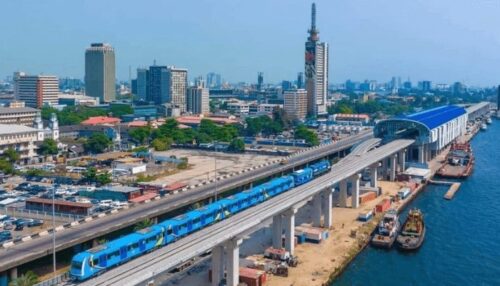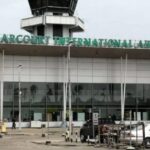
The Lagos State Government is making significant progress in improving the city’s transport infrastructure, with a major focus on the Quality Bus Corridor (QBC) project. This initiative, spearheaded by the Lagos Metropolitan Area Transport Authority (LAMATA), is part of the Greater Lagos vision, aimed at enhancing mobility and reducing congestion.
Expansion of the Transport Network
The first phase of the QBC project, spanning 8.7 kilometers, has been designed to connect Yaba to Cele along the Apapa-Oshodi Expressway. In addition to the Blue and Red Line rail services, multiple road projects are being undertaken by the government to further enhance connectivity. Consequently, commuters are expected to benefit from smoother and faster transportation across the city.
Governor Babajide Sanwo-Olu’s administration has prioritized transport development under its T.H.E.M.E.S agenda, which emphasizes mobility, safety, and urban development. As a result, Lagos’ transportation network is being modernized to align with global standards.
Funding and Execution of the Project
The QBC project is jointly financed by the Lagos State Government and Agence Française de Développement (AfD). Several key improvements have been planned, including:
- Upgrading of bus stops
- Construction of pedestrian walkways to support non-motorized transport
- Deployment of an Intelligent Transport System (ITS) for better traffic management
To accommodate the expansion, structures along Ojuelegba and Cele were demolished by LAMATA. Despite these disruptions, the authorities assured that only the minimal space required for construction was taken.
Managing Displacement and Compensation
Due to the demolition process, many residents were affected, leading to concerns about compensation. Although some have acknowledged the need for urban development, they have emphasized the importance of receiving fair compensation.
According to Godwin Ayebe, a media professional, the project marks a significant step forward in Lagos’ transport modernization efforts. Nevertheless, he stressed that adequate compensation must be provided in real-time to those displaced.
Similarly, Moses Lawal, a frequent commuter, urged the government to implement a fair approach when dealing with those affected. He recalled that during the Red Line construction, compensation was handled efficiently, and a similar approach should be followed in this case.
To address these concerns, a resettlement initiative was introduced by LAMATA, in collaboration with Global Impact Environmental Consulting. Additionally, cheques were presented to those impacted, reinforcing the government’s commitment to fairness.
Key Contractors and Future Development Plans
In an effort to accelerate the project, a revalidation and valuation process for affected structures was carried out before contracts were awarded in August 2024.
- China Road & Bridge was assigned the Ketu-Alapere-Akanimodo and Yaba-Lawanson-Cele routes under QBC Package 1.
- Trucrete Solutions was tasked with managing QBC Package 2 (Iju-Ishaga to Abule-Egba).
- Craneburg Construction was awarded QBC Package 3 (Iyana-Iba to Igando).
As the state’s transport system continues to evolve, Lagos residents will eventually experience an improvement in transit efficiency.
Rail Expansions and Additional Road Projects
Apart from the QBC initiative, significant progress has also been made in expanding the Blue Line Rail project, with Phase 2 currently underway. This phase includes the addition of six new stations at Festac, Alakija, Trade Fair, Volkswagen, LASU, and Okokomaiko.
Furthermore, several key road upgrades were completed by the Lagos State Government, including the dualization of Chief Yesufu Abiodun Oniru Road and Akiogun Road. These serve as alternative routes that have helped to ease traffic congestion in major areas.
Additionally, three newly constructed roads in Eti Osa Local Government were inaugurated by Governor Sanwo-Olu, reinforcing the administration’s focus on improving connectivity and reducing travel time.
Conclusion: A Smarter and More Connected Lagos
Ultimately, Lagos’ transportation sector is being transformed, with various projects aimed at enhancing public mobility and boosting economic growth. With continued investment in bus corridors, rail expansions, and road infrastructure, the government is working towards a more efficient, commuter-friendly, and globally competitive transport system.


